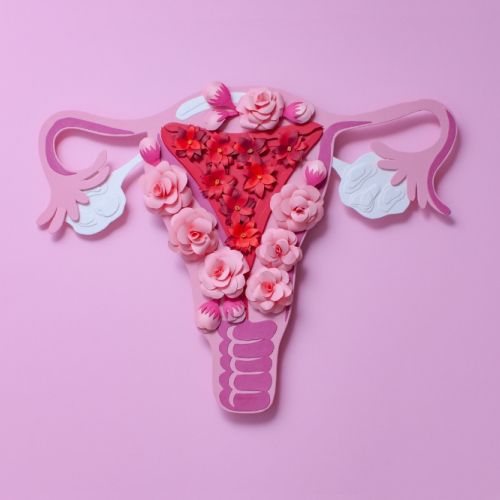How to Stay Positive During Fertility Treatment

When you want a child more than anything else but haven’t been able to conceive, you may feel extremely disappointed and sad. You may have a hard time staying positive but you need to work on not allowing negativity to overtake you. Remember that it takes a lot of courage to pursue fertility treatment, and getting the results you want may be a long process. It’s important to know how to stay positive during fertility treatment.
Having a supportive and compassionate team on your side can make a big difference. You can count on the staff at the Center for Reproductive Health to help you navigate the ups and downs of the fertility treatment process.
Coping With Overwhelming Emotions
Fertility treatment can make you feel emotional and out of control. It’s important to avoid allowing overwhelming emotions such as sadness, anxiousness, or discouragement to consume you. Some ways to cope with overwhelming emotions include:
- Physical activity. Physical activity is a great way to release stormy emotions. Try to fit some form of physical activity such as walking, swimming, or dancing into your daily routine. Quiet forms of physical activity such as yoga, tai chi, or qigong are great ways to focus on the moment and not on emotional turbulence.
- Journaling. Writing down your feelings gets them out of your head and helps you sort through what’s really bothering you. Another approach is to make a habit of expressing gratitude on paper or writing about good things that happen to you each day, which keeps your focus off feelings of negativity.
- Meditation. Meditation refers to several different ways to achieve a state of relaxation. Practice quieting your mind using deep breathing, mantras, or guided meditations.
- Therapy. A trained psychotherapist can help you sort through feelings of negativity and emotional distress and can recommend tools and practices to help you cope with the way you’re feeling.
- Ask for help. It’s important to surround yourself with supportive people. Friends and family members may unintentionally say things that make you feel worse. Know where to go to get the emotional support you need, whether it’s your closest friend, an in-person support group, or an online discussion group.
Negative thoughts can creep in and bring you down. Work on being kind to yourself and interrupting any negative thoughts that you might have. Fertility challenges aren’t your fault. Visualize a peaceful place or a positive outcome and think about things in your own life that lift you up. Instead of dwelling on what may or may not happen, take the time for listening to music, playing with a pet, reading a book, watching funny cat videos, or just relaxing.
Keep Learning About Fertility Treatment
Feeling emotional is sometimes triggered by feeling confused or uncertain, so it’s a good idea to get as much information as you can about what to expect during fertility treatment. Don’t hesitate to reach out to the experts at the Center for Reproductive Health with any questions or concerns you may have.
Eliran Mor, MD
Reproductive Endocrinologist located in Encino, Valencia & West Hollywood, CA
FAQ
What does a reproductive endocrinologist and infertility specialist do?
Reproductive endocrinology and Infertility is a sub-specialty of Obstetrics and Gynecology. In addition to managing medical and surgical treatment of disorders of the female reproductive tract, reproductive endocrinologist and infertility (REI) specialists undergo additional years of training to provide fertility treatments using assisted reproductive technology (ART) such as in vitro fertilization.
Reproductive endocrinologists receive board certification by the American Board of Obstetrics and Gynecology in both Obstetrics and Gynecology and Reproductive Endocrinology and Infertility.
When should I see an REI specialist?
In general, patients should consider consulting with an REI specialist after one year of trying unsuccessfully to achieve pregnancy. The chance of conceiving every month is around 20%, therefore after a full year of trying approximately 15% of couples will still not have achieved a pregnancy.
However, if a woman is over the age of 35 it would be reasonable to see a fertility specialist earlier, typically after 6 months of trying.
Other candidates to seek earlier treatment are women who have irregular menses, endometriosis, fibroids, polycystic ovary syndrome (PCOS), women who have had 2 or more miscarriages, or problems with the fallopian tubes (prior ectopic pregnancy).
What are the reasons we are having trouble conceiving?
Approximately 1/3 of the time cause for infertility is a female factor, 1/3 of the time a male factor, and the remaining 1/3 a couples’ factor.
At CCRH, we emphasize the importance of establishing a correct diagnosis. Both partners undergo a comprehensive evaluation including a medical history and physical exam.
Furthremore, the woman’s ovarian reserve is assessed with a pelvic ultrasound and a hormonal profile. A hysterosalpingogram (HSG) will confirm fallopian tube patency and the uterine cavity is free of intracavitary lesions. A semen analysis is also obtained to evaluate for concentration, motility, and morphology of the sperm.
Additional work up is then individualized to direct the best possible treatment option for each couple.
What is IVF? What is the process like?
In vitro fertilization (IVF) is the process that involves fertilization of an egg outside of a woman’s body.
The process starts with fertility drugs prescribed to help stimulate egg development. In your natural cycle, your body is only able to grow one dominant egg, but with stimulation medication we can recruit multiple eggs to continue to grow. After about 8-10 days of stimulation, the eggs are surgically retrieved and then fertilized with sperm in a specialized laboratory. Fertilized eggs are then cultured under a strictly controlled environment within specialized incubators in the IVF laboratory for 3-5 days while they develop as embryos. Finally, embryos (or an embryo) are transferred into the uterine cavity for implantation.
Should I have IVF?
Before deciding if IVF is the right choice, it’s important to sit down with an REI specialist to discuss available treatment options. For some people, other methods such as fertility drugs, intrauterine insemination (IUI) may be the best first choice treatment. At CCRH, we believe each individual couple is unique and not everyone needs IVF.
Is the IVF procedure painful?
While not painful, the fertility medications may some side effects including headaches, hot flashes, mood swings, and bloating. The injection sites may also bruise.
Will IVF guarantee a baby?
Unfortunately, no. Many people think once they start IVF it’s a matter of time that they will be pregnant and have a baby. But according to national statistics per the Society of Assisted Reproduction (SART), on average 40% of assisted reproduction cycles achieve live births in women under age 35. The chances of success then continue to decrease with advancing age.
At CCRH, we employ only evidence-based interventions to ensure patient safety and optimal outcome. While we cannot guarantee a baby, we guarantee that you will receive the best, most advanced, personalized care to help you maximize your chance of a baby.
What is the success rate for IVF?
The average IVF success rate (success measured in live birth rate) using one’s own eggs begins to drop around age 35 and then rapidly after age 40. This is due to the decline in egg quantity and egg quality as a woman ages.
Our clinic’s success rate consistently beats the national average year after year.
Do insurance plans cover infertility treatment? How much does IVF cost?
Individual insurance plans often do not have any coverage for infertility treatments. If you have a group plan, you can call members services to see if they have coverage for infertility (including consultation/workup and IVF).
After your consultation with our REI specialist, one of our dedicated account managers with sit with you to go over the cost of treatment.




